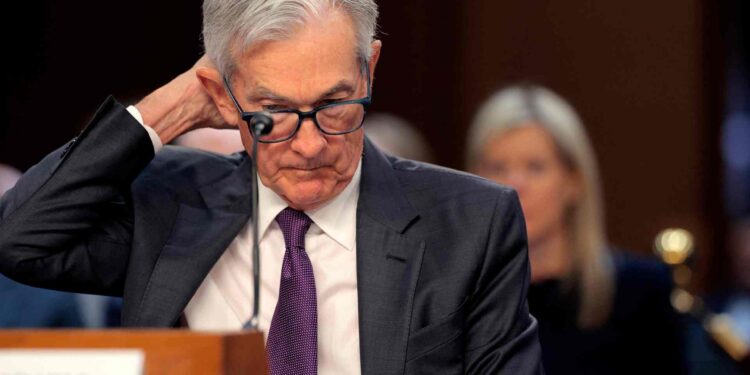US Federal Reserve Chairman Jerome Powell stressed that the impact of the customs definitions that the Donald Trump administration intends to impose on inflation has not yet been clear, noting the need to monitor several factors to determine the extent of the impact of these fees on prices in the long term.
“In the simple case, if we know it is a step for one time, the traditional economic approach indicates that there is no need for an immediate response from the federal by tightening monetary policy,” Powell said during a session of questions and answers at the Chicago Booth University Forum in New York.
But he stressed the need to follow up on several factors before making any decisions “if it turns into a series of repeated increases, and if it is large, then this will be influential, and what really matters is the extent of its impact on the long -term inflation expectations.”
Previous definitions were not inflated
Powell explained that Trump’s commercial measures during his first term did not lead to inflation, but rather slowed global growth, which prompted the federal to reduce interest rates at the time.
Powell’s comments came after a week of sharp fluctuation in the financial markets, as Trump imposed customs tariffs by 25% on Canada and Mexico imports, before its application was postponed until April. However, the US President indicated the possibility of speeding up the implementation of additional definitions on other imports.
Powell’s vision contradicts the statements of Treasury Scott Besent, who reduced the impact of definitions on inflation, noting that any price rise will be “temporary and not sustainable.”
“There is nothing more transitional than the definitions if it is just one -time price adjustments,” Besent added, noting that these measures will not lead to sustainable inflation.
However, Powell’s comments – according to Reuters – reflect the Federal concern about the possibility of a conflict between him and the president’s administration, especially if Trump continues to apply wide -scale definitions on imports of trillion dollars.
The federal is cheating
Powell stressed that the federal will need to evaluate the net impact of all Trump’s economic policies, including the organizational changes that Besent considers a driving of growth and an ugliness of inflation.
In light of the lack of clarity of the full image, Powell said that there is no need to rush to reduce interest rates, especially since the inflation rate is still slightly higher than the 2%federal goal.
“The new administration is working to implement major changes in economic policy. The uncertainty is still high on the impact of these changes, and we need to focus on distinguishing between real references and temporary noise with the development of the situation,” he added.
In the aftermath of these statements, the financial markets rose after the main indicators reduced their losses in the Friday session.
Money markets interact with caution
After the statements of the American minister, investors have strengthened their expectations that the federal will begin to reduce interest rates by June, with the possibility of 3 discounts by 0.25% for each of them before the end of the year.
“Powell’s statements give tense markets some reassurance about growth, while carrying a conservative tone on monetary policy,” said Krishna Goh, Vice President of the Evekor Foundation.
He also pointed out that Powell cited the 2019 experience when the federal reduced interest rates 3 times due to the impact of commercial wars on growth, which enhances the possibility of the federal adoption of a flexible attitude towards the effects of new definitions.
Unstable
Despite the increasing concern about inflation, the Federal Reserve Chief stressed that the American economy “is still in a good position”, noting the continued achievement of gains in the labor market.
According to government data, the US economy added 151,000 jobs in February, while the average job added since September reached 191,000 jobs per month.
It is expected that the federal will keep interest rates stable in the range of 4.25%-4.50% during its next meeting on 18-19 March, as official economic expectations will be updated to assess the impact of Trump’s economic policies on inflation, employment and economic growth.



